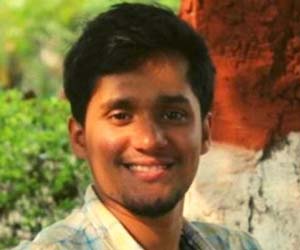The usage of the word ‘tolerance’ could be traced back to 15th century when it denoted ‘the power or capacity of sustaining’. It evolved to receive a more political meaning in the 16th century to mean ‘action of allowing; license, permission granted by authority’ (for instance, Queen Elizabeth I might allow the Puritans to carry on with their religious practices, which she herself did not follow).[1] Thereafter, the word tolerance acquired a wider status in the English lexicon. In the words of Richard Davis, tolerance became ‘the disposition of being patient with or indulgent to the opinions and practices of others.’[2] Therefore, the connotation of the word tolerance is a particular cultural product of Europe, which evolved in a specific religio-political atmosphere from time to time. However, words like tolerance are considered to be a universal value untouched by any historical specificity of any specific culture, rather it is taught to us an ‘enlightenment’ value nurtured for humanity.[3]
If the word tolerance had different connotations from time to time within Europe, similarly it would have different connotations for itself within various religions or traditions. The concept of tolerance evolved from the message of Hinduism would be different from how that term is represented in secular modernity dominated by Western narratives. This article is dedicated to the spiritual master Swami Vivekananda, who took the world stage at Chicago around 130 years ago, to share the Indic wisdom of coexistence. His words at the Parliament of World’s Religions were so profound and articulated the message in the language that a Western mind could understand, which is why new avenues opened up after 11 September, 1893 for him, Hinduism and India in the Western world.
Religious tolerance could be used and has been used in diverse ways in the past. Even in contemporary times, every religion attempts to take ownership of the term and tries to describe their religion as essentially tolerant. What enables each religion to describe itself as tolerant is the subtle nuances that underlay their sense of exclusivism and inclusivism against other religions, which in turn is largely determined by their world view.
Supersessionism is at the heart of the world view of religious development in the West. Christianity builds on, supersedes and claims to have progressed from Judaism. Islam further historically identifies itself as a religion that progressed from the preceding religions, whereas for Christianity, Islam appears as a heresy. In this framework of understanding, each religion claims to have achieved a perfectum in relation to a universal truth claim that is believed to be an achievement, which is ‘historical’ in nature, achieved by a fulfillment of time. In this schema of things, each religion reduces its predecessor only as a necessary step taken to achieve a position of perfection. What it implies is that the preceding religion is ‘outdated’ and the new faith is ‘true’ for it being the new revelation by God. Such a self positioning is legitimated by a permanent opposition laid on the other, just as Christianity considers itself as a ‘New creation’ out of the Jewish faith, by being foundational to Judaism and by being permanently opposed to it at the same time.
Therefore, in the language of the ‘New’ Testament, the Old Testament remains devalued as ‘old’. In the words of Arbogast Schmitt, “For it, the new emerges only out of overcoming the old, from the break with it, from its dissolution or destruction, out of a reform, a revolution or a turn.”[4] This is also the framework in which, in the West, ‘modernity’ and ‘tradition’, ‘science’ and ‘faith’ engage to each other as mutually opposing entities in an extreme way. Other religions formed after the achievement of that perfection (like Islam from a Christian perspective) is reduced as a degeneration or heresy from the true faith. Without doubt, this has often led to violence and conflict among religions and sects within. On the other hand, supersessionism has also influenced how each religion understands about ‘tolerance’ or on how to treat the other.
Being aware of this problem among dominant religions of the world, which were Abrahamic, Swami Vivekananda had identified that for the religions and humanity to co-exist this culture of supersessionism should be identified and undermined. Rather than supersessionism, which ‘dreams of exclusive survival of his own religion and destruction of others’[5], what Swamiji points out is a transformation towards harmonization and assimilation, instead of destruction and dissension.
Swami Vivekananda preached the Vedic message of ēkam sat viprah bahūta vadantī, which means that the truth is one and the sages articulate it differently. When the discussion turns to whether my god is the only true god, or whether my religious book contains the most superior truth in the world, it is not only challenging but also enlightening to come up with such a magnificent philosophy, which has the volume to accept everything while remaining proud of its own traditions. Swāmiji took the lead and not only widened the concept of brotherhood from its narrow meaning but guided the world for “acceptance” rather than just “tolerance.” Brotherhood based on religious identification has a very limited perspective. It eventually devolves into another form of organization that considers itself superior to others. Swami Vivekananda broadened the concept of brotherhood by looking at it from a universal framework by addressing the Parliament of World’s Religions on September 11, 1893, in Chicago, United States of America. However, Swāmiji never claimed the concept as his own, instead, credited it to the Indic textual traditions, as his speeches were based on the Vedās and the Upanisads.
Swāmiji’s thoughts on universal brotherhood took over the West, which had been confined to religious and sectarian brotherhood. The Parliament of World’s Religions was subtly intended to be a forum to prove one's religion superior to another, but Swamiji transformed it into a platform for universal brotherhood. Swāmiji demonstrated that one can be proud of his religion, yet respect all other religions. Even now, when the world is divided into sects and creeds, there remains a tendency to impose one's ideas on others. In his address to the Parliament of World’s Religions’ final session, he outlined the path forward for religious debates and discussions in a way that “The Christian is not to become a Hindu or a Buddhist, nor a Hindu or a Buddhist to become a Christian. But each must assimilate the spirit of the others and yet preserve his individuality and grow according to his own law of growth."[6]
Swāmiji's message of universal brotherhood is a road for all in this period, inspiring one not only to tolerate but to accept. Swami Vivekananda delivered six speeches during the Parliament of World’s Religions, which was hosted for 17 days (September 11 to 27, 1893).[7] The Parliament was a game changer for India, since Swāmiji not only proved to be the most proficient speaker throughout, but he also instilled a respect for Indian philosophy in the Western minds through his talks.
Endnotes :
[1]Sharma, Arvind. Religious Tolerance: A History. India: HarperCollins India, 2019.p.1-2
[2]Davis, Richard H. Tolerance and Hierarchy: Accommodating Multiple Religious Path in Hinduism, in Jacob Nuesner and Bruce Chilton (eds), Religious Tolerance in World Religions, West Conshohocken, P.A: Templeton Foundation Press, 2008, p. 363.
[3]Tolerance was a ‘key term’ considering the heavy use of the term in the Enlightenment, see in Schmidt-Leukel, Perry. Beyond Tolerance: Towards a New Step in Inter-Religious Relationships, Scottish Journal of Theology 55:4 (2002). p.379.
[4]Arbogast Schmitt, Modernity and Plato: Two Paradigms of Rationality, trans. Vishwa Adluri (Rochester, NY: Camden House, 2012), 4
[5]Address to the final session, 1893
[6]Vivekananda, Swami ( 2018). Address at the Final Session, The Complete Works of Swami Vivekananda, Volume 1, Swami Muktidananda Adhyaksha, Advaita Ashrama Mayavati Champawat, Uttarakhand, Himalayas ,Pg25
[7]The six lectures we are mentioning here are a) Response to Welcome (11 September), b) Why We Disagree (15 September), c) Paper on Hinduism (19 September), d) Religion Not the Crying Need of India (20 September), e) Buddhism, the Fulfillment of Hinduism (26 September), f) Address at the Final Session (27 September). Swāmiji also delivered some lectures in the Scientific section of the parliament, whose script is unavailable. See in, Dhar, Saliendra Nath (2012). Swami Vivekananda’s Mission in The West - The First Phase, A Comprehensive Biography of Swami Vivekananda,Vivekananda Kendra Prakashan Trust,2012,Chennai .Pp.630-637
(The paper is the author’s individual scholastic articulation. The author certifies that the article/paper is original in content, unpublished and it has not been submitted for publication/web upload elsewhere, and that the facts and figures quoted are duly referenced, as needed, and are believed to be correct). (The paper does not necessarily represent the organisational stance... More >>











Post new comment